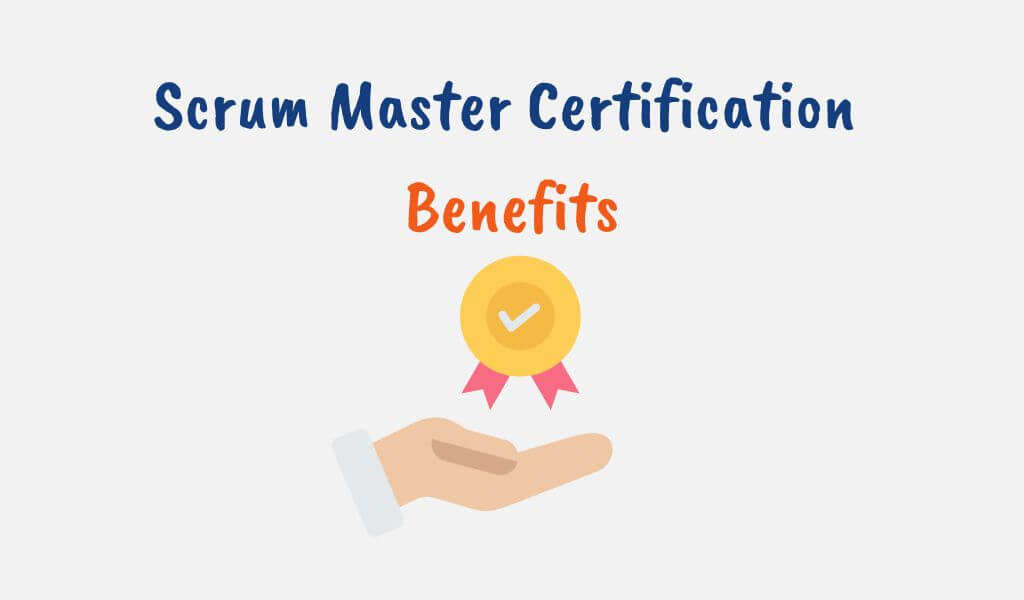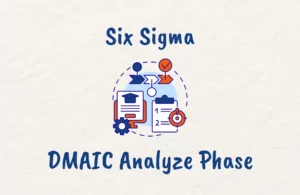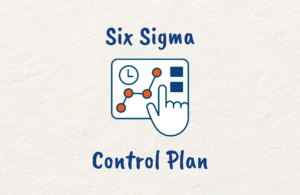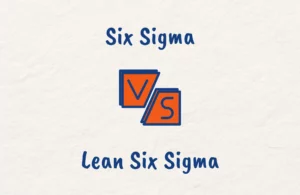Becoming a Certified Scrum Master (CSM) can be a very rewarding career move for project managers and team leaders.
Scrum is the most popular framework for implementing Agile software development and there are a ton of awesome benefits of Scrum Master certification for you.
While there are different Scrum Master certifications, the Certified Scrum Master certification (CSM) happens to be one that comes highly recommended and will be highlighted in this blog post.
As companies adopt Scrum and Agile methods, the demand for CSMs is growing rapidly and you can’t go wrong by acquiring the certification.
Who is a Scrum Master?
A Scrum Master is the facilitator of a Scrum team and is responsible for helping team members use the Scrum framework effectively.
The Scrum Master also helps resolve any impediments that are blocking the team from being productive.
Beyond facilitating the team’s use of Scrum processes, a good Scrum Master will build a trusting relationship with the team and support them in various ways.
Key Responsibilities of a Scrum Master
The core responsibilities of a Scrum Master include:
- Helping the Product Owner maintain and prioritize the Product Backlog. The Scrum Master should understand the product vision and help the Product Owner translate that into a well-groomed product backlog.
- Facilitating all Scrum Events like Daily Standups, Sprint Planning, Sprint Reviews, and Sprint Retrospectives. The Scrum Master should ensure these events happen on schedule and that the outcomes align with Scrum values.
- Coaching the team on how to use Scrum and Agile practices. When issues come up, the Scrum Master should guide the team in resolving them in an Agile way.
- Removing impediments that are blocking the team. This could include fixing technical issues, addressing interpersonal conflicts, or securing resources the team needs. The Scrum Master should tackle any issues preventing the team from making progress.
- Protecting the team from outside distractions and interruptions. The Scrum Master shields the development team so they can focus on work related to the current sprint goal.
- Continuously improving team processes. Through regular feedback and retrospectives, the Scrum Master should make incremental enhancements to the way the team works together.
Skills of an Effective Scrum Master
Some of the key skills and attributes of a good Scrum Master include:
- Excellent communication and facilitation skills: The Scrum Master spends a lot of time meeting with people, resolving conflicts, and leading group discussions. Strong communication abilities are essential.
- Servant leadership mentality: The Scrum Master should have a servant mindset, focusing on the needs of team members and helping them become self-organizing. Rather than exerting control, the Scrum Master empowers the team.
- Knowledge of Agile and Scrum: The Scrum Master has a solid understanding of the rules and values of Scrum, as well as other Agile methodologies. They stay up-to-date with evolving practices.
- Problem-solving skills: The Scrum Master is frequently called upon to facilitate resolution of complex or controversial issues. They need to be adept at navigating challenging discussions and finding collaborative solutions.
- Adaptability: Scrum teams operate in a fast-paced, ever-changing environment. The Scrum Master should be comfortable with ambiguity and able to adjust their leadership style based on the current team dynamics.
- Continuous learning mindset: Great Scrum Masters have a passion for ongoing learning and growth. They never stop improving their craft, expanding their knowledge of Scrum and Agile topics, and gaining insights through experience.
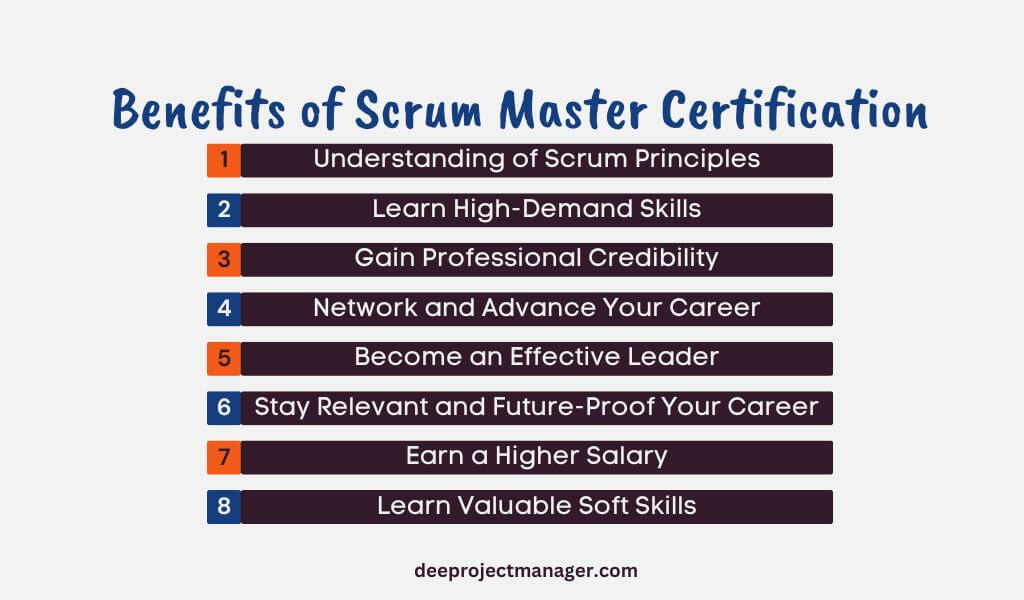
Benefits of Scrum Master Certification
Below are the main benefits of obtaining Scrum Master certification:
1. Gain a Solid Understanding of Scrum Principles and Practices
To become a CSM, you need to take a 2-day Scrum Master course and pass the CSM exam. This course provides a comprehensive overview of Scrum frameworks, values, team roles, events, and artifacts.
You’ll learn concrete practices for facilitating Scrum teams, removing impediments, and coaching teams to deliver high-value products efficiently.
With Scrum Master certification, you’ll develop a resonant understanding of key Scrum principles like transparency, inspection, adaptation, self-organization, cross-functionality, and continual improvement.
This understanding provides a solid foundation for guiding teams to high performance.
2. Learn Skills That Are In High Demand
Scrum and Agile methods have gone mainstream, and many companies now use Scrum to facilitate software development and digital transformation.
As a result, there is a huge demand for professionals with Scrum Master certification. According to the 9th Annual State of Agile Report, the most requested role is the Scrum Master.
CSMs are well compensated, with average US salaries well over $100,000 per year.
Becoming a CSM also provides skills that transcend any single methodology or framework. Certified Scrum Masters develop soft skills in facilitation, coaching, conflict resolution, and team dynamics that translate across domains and help in various leadership roles.
3. Gain Professional Credibility and Recognition
For project managers and team leaders looking to pivot into an Agile career path, becoming a Certified Scrum Master is a way to gain relevant and respected credentials in the field.
The CSM designation is globally recognized as a premium certification for Scrum Masters and a sign of Scrum expertise.
Obtaining the CSM credential also shows your professional commitment to continued learning and developing mastery in your field.
Staying up to date with advances in Agile methods and Scrum practices is an ongoing process, and maintaining CSM certification requires renewal every two years through continued education.
4. Network and Advance Your Career
When you earn Scrum Master certification, you join a global community of professionals. Attaining your CSM provides access to local user groups, meetups, and the broader Scrum network.
Interacting with other CSMs is a great way to share knowledge, get different perspectives, stay up-to-date with trends, and build connections for new opportunities.
For those interested in career advancement, Scrum Master certification can lead to higher-level Agile roles like Scrum Coach or Agile Coach.
Experienced CSMs may also transition into Product Owner, Release Train Engineer, or other leadership roles.
Your CSM credential signifies your ability to guide teams to success using Scrum, which provides a strong base for taking on more responsibility.
5. Learn Valuable Soft Skills
As a Scrum Master, you’ll cultivate skills like active listening, facilitation, coaching, and conflict management. These soft skills are highly useful across jobs and careers.
You’ll learn to ask probing questions, provide constructive feedback, and navigate challenging conversations. These interpersonal abilities will benefit you no matter what role you’re in.
6. Become an Effective Leader and Change Agent
CSMs develop skills in leadership, motivation, and change management. You’ll learn strategies for helping individuals and teams overcome obstacles, change mindsets, and continuously improve.
This ability to guide change and motivate transformation is useful in any leadership position.
Certified Scrum Masters gain practical experience in building a shared vision, empowering self-organizing teams, and unlocking higher productivity.
7. Increase Collaboration and Problem-Solving
Scrum frameworks teach you how to facilitate group problem-solving and build a collaborative team environment.
From CSM training and certification, you’ll discover techniques for reducing cross-team conflicts, improving transparency, aligning priorities, and making decisions through consensus.
These skills help optimize teamwork and deliver the most value, and allow you to integrate different perspectives and get the most from a group.
8. Stay Relevant and Future-Proof Your Career
Scrum and Agile methodologies are the future of project management. Becoming a CSM helps ensure you have a place in that future.
As more companies adopt Agile and Scrum, demand for Scrum Masters will continue growing.
Professionals with CSM certification will have opportunities for challenging, rewarding work helping organizations achieve a competitive advantage through faster innovation, greater efficiency, and better quality products.
9. Earn a Higher Salary
On average, Certified Scrum Masters earn significantly higher pay than those without the credential.
According to the Scrum Alliance, CSMs in the U.S. earn a median salary of $116,000.
While many factors determine salary, holding an industry-standard certification demonstrates your competency and skills, which contributes to higher compensation, increased career opportunities, and greater job security.
Summary
In summary, becoming a Certified Scrum Master can benefit your career in many ways.
You’ll gain invaluable knowledge about Scrum and Agile practices, develop skills that are in high demand, gain professional credibility, join a strong global network, and open up more career opportunities.
If you’re passionate about maximizing team performance and continuous improvement, Scrum Master certification may be the right step forward.

